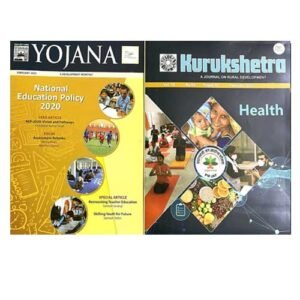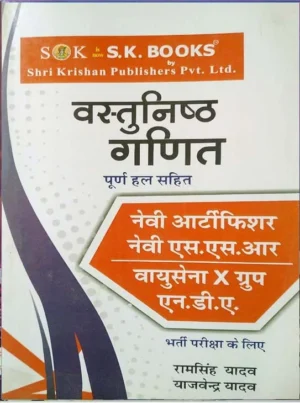Bhartiya Samvidhan Evam Rajvyavastha Indian Constitution and Polity By S K OJHA Pariksha Vani
“Bhartiya Samvidhan Evam Rajvyavastha” translates to “Indian Constitution and Political System” in English. The Indian Constitution is the supreme law of India, and it lays down the framework for the governance of the country. It’s a comprehensive document that encompasses the political system, fundamental rights, and the distribution of powers between various entities in India.
If you’re interested in learning more about the Indian Constitution and the political system of India, you can start by studying the following topics:
- Preamble of the Indian Constitution: Understand the significance and objectives outlined in the Preamble.
- Parts of the Constitution: The Indian Constitution is divided into various parts, and each part deals with specific aspects of governance and law. Study these parts in detail.
- Fundamental Rights: Learn about the fundamental rights guaranteed to Indian citizens, including the right to equality, freedom, and the right to constitutional remedies.
- Directive Principles of State Policy: Understand the directive principles and how they guide the state in policy-making.
- Fundamental Duties: Familiarize yourself with the fundamental duties of Indian citizens as outlined in the Constitution.
- Structure of Government: Study the structure of the Indian government, including the President, Parliament, and the Judiciary.
- Amendment Procedure: Learn how the Indian Constitution can be amended and the significance of various amendments.
- Federalism: Understand the distribution of powers between the central government and state governments.
- Elections and Political System: Explore the electoral process, political parties, and the functioning of the Indian political system.
- Emergency Provisions: Study the provisions for declaring a state of emergency in India.
- Constitutional Bodies: Learn about constitutional bodies like the Election Commission, the Finance Commission, and the Attorney General.
- Important Amendments: Familiarize yourself with key constitutional amendments that have shaped Indian governance.
- Landmark Judgments: Be aware of significant Supreme Court judgments that have influenced the interpretation of the Constitution.
- Local Governance: Understand the role and functions of Panchayats and Municipalities in local governance.
- Social Justice and Inclusive Policies: Explore policies and provisions aimed at achieving social justice and inclusivity.
Studying the Indian Constitution and political system is a vast and complex endeavor, but it’s essential for anyone interested in understanding how India is governed. You can find textbooks, online resources, and courses that provide in-depth information on these topics to help you gain a comprehensive understanding of “Bhartiya Samvidhan Evam Rajvyavastha.”







Reviews
There are no reviews yet.